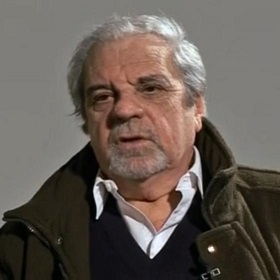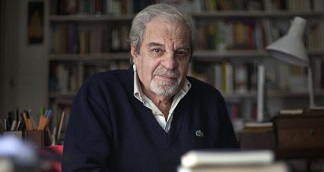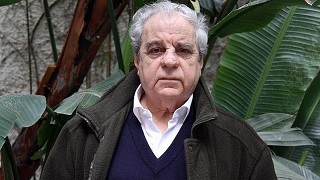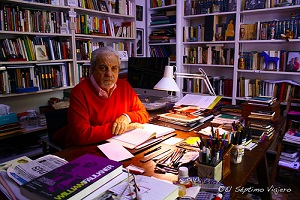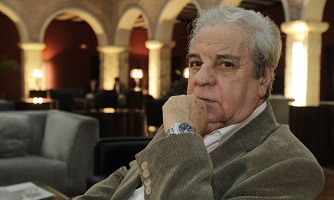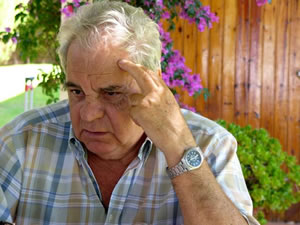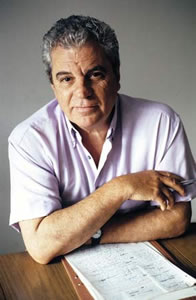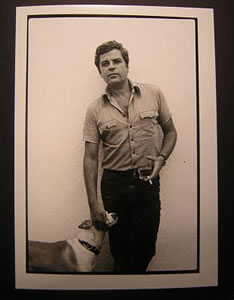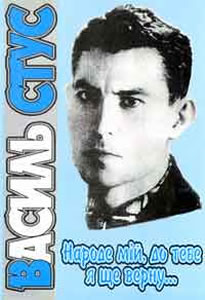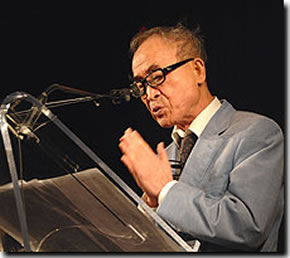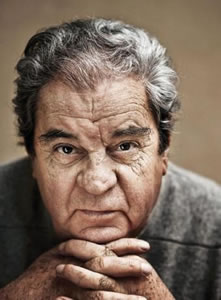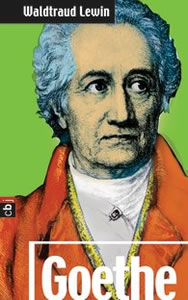De Catalaanse schrijver Juan Marsé werd geboren op 8 januari 1933 in Barcelona. Zie ook alle tags voor Juan Marsé op mijn blog.
Uit: Detektivgeschichte (Vertaald door Alexander en Michael Fidora)
„An den hellen Tagen reicht die Sicht von den oberen Stadtteilen, von dieser Straße, die sich gegen den Hügel aufbäumt, als wolle sie sich im Mittelmeer betrachten, weit aufs Meer hinaus, und das Herz täuscht sich: das schlafende Viertel ist ein Ausblick über einem Traum, der nicht vergeht. Manchmal aber, jenseits des Hafens und seiner Wellenbrecher, jenseits des weißen Schaumes der Kähne, der die Küste säumt, am Heck der Frachtschiffe, die am Horizont auf Anker zu liegen scheinen, und auf dem rostigen Vorschiff der großen Öltanker, die nach Süden steuern, manchmal haben wir die silbernen Ringe funkeln sehen in den Ohren der über die Reling gebeugten Seemänner, sahen wir die auf ihre Bronzebrüste tätowierten Sirenen und die vom Pfeil durchbohrten Herzen unter einem Frauennamen; natürlich nur wenn man sehr darauf achtet, wenn man wirklich sehen will, wonach man schaut, und sich nicht von der Sonne blenden lässt. Aber an den grauen Tagen verliert sich der Blick in einem Dunst aus Nebeln und flachen Rauchschwaden, die das Labyrinth der Stadtviertel Horta und La Salud verpesten, und vermag nicht weiter vorzudringen. Die Stadt streckt sich gespenstisch und grau nieder, wie ein schlammiger Tümpel, ein totes Gewässer. Es war einer dieser schlechten Tage, verregnet und mit eisigen Windböen, als wir uns im Auto für einen besonderen Auftrag trafen. Im Fenster sahen wir eine Möwe, die verirrt durch den Regenwind segelte. Ab und zu hob der Wind an, und der Regen schien dann in der Luft zu hängen, still geneigt. Dann ließ sich die Möwe im Sturzflug auf uns fallen, streifte mit ihrem äschernen Flügel die matte Windschutzscheibe des Lincoln, und bevor sie den Flug wieder aufnahm, starrte sie uns schief mit ihrem Bleiauge an.
“Ein Höllentag”, sagte Marés hinterm Steuer und lud zu rauchen ein. “Haltet die Augen offen.”
Er sprach mit seiner Bauchrednerstimme, ohne die Lippen zu bewegen. Und wie im Traum, durch den blausten und durchsichtigsten Rauch, den eine ekelhafte Zigarette in ekelhaften Jahren je abgegeben hatte, sahen wir durch das offene Gelände eine Frau auf uns zukommen, mit einer grauen Baskenmütze und hellem Mantel, sehr blass und sehr hübsch und verheult. Es war ein Samstag Nachmittag im April, der wie November war. Juanito Marés musterte David und Jaime auf dem Rücksitz, danach mich. Als er mir den Ellbogen in die Rippen stieß, war mir klar, dass er mich ausgewählt hatte:
“Schöne Beine”, sagte er, während er die Frau anschaute.
“Ja, Chef.”
“Gefallen sie dir?”
“Und ob, Chef.”
“Dann verlier sie nicht aus den Augen.”
Er kniff seine Katzenaugen zusammen und zog ein Gesicht wie der alte, listige Barry Fitzgerald, der in Die nackte Stadt dem Detektiv [sabueso] befiehlt, das Mädchen zu verfolgen. Er brummte noch:
“Los, sie gehört dir.”
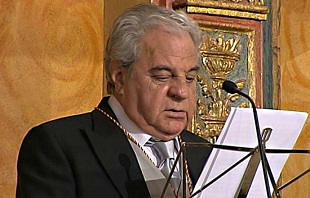
Juan Marsé (Barcelona, 8 januari 1933)
De Duitse (toneel)schrijfster Claudia Grehn werd geboren op 8 januari 1982 in Wiesbaden. Zie ook alle tags voor Claudia Grehn op dit blog.
Uit: Reicht es nicht zu sagen ich will leben
„JÜRGEN Sie schulden uns was, nicht wir Ihnen, Sie können Samstag noch kommen, oder wir ziehens vom nächsten Lohn ab, wie sie wollen.
GEORG Ich arbeite diese Minusstunden auch noch ab. Aber nicht mehr an diesem Telefon sondern in der Montage. Ich will zurück in die Montage.
Wissen Sie, was ich gelernt habe?
JÜRGEN Das ist zurzeit nicht relevant. Es geht hier um ein komplexes Netz von/
GEORG Ich weiß, ich habe die Leitungen hier verlegt. Ohne mich könnten sie hier nicht mal ihr Handy aufladen. Seit 1975 in diesem Betrieb.
JÜRGEN Seit 1975- Wenn Sie genug von diesem Unternehmen haben / Wir leben in einem Wohlfahrtsstaat. Sie sind frei. Das Geld kommt auch, wenn Sie nichts mehr tun.
GEORG Ich bring mich nicht um. Ich bleibe hier sitzen bis ich meinen Job wiederhabe.
JÜRGEN Jeden morgen, wenn ich zur Arbeit fahre, sehe ich die Türkinnen zu Fuß zur Fabrik gehen/ und abends machen die noch den Haushalt, werden weiter herumbefohlen, die wären froh, könnten sie sich mal hinsetzen und nichts tun.
Da ist er gegangen. Ich habe ihn nicht wieder gesehen. Du kannst ein Einzugsverfahren einleiten, Bert.
BRIETZ Jürgen, wie kommt es dass wir in dem ganzen Jahr hier keine Steuern gezahlt haben?
JÜRGEN Angestellte. Bekloppte. Kannst froh sein hast du mit denen bisher nichts zu tun gehabt.“
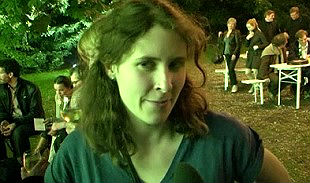
Claudia Grehn (Wiesbaden, 8 januari 1982)
De Duitse schrijfster Waldtraut Lewin werd geboren op 8 januari 1937 in Wernigerode. Zie ook alle tags voor Waldtraut Lewin op dit blog.
Uit: Goethe
„Und dann: «Ich werde meinen Eheherrn bewegen, anlässlich dieses Vorfalls, einen Geburtshelfer für die Armen zu bestellen und die Wehmütter besser unterrichten zu lassen. Sodass denn doch ein Segen entsteht aus dem, was heute beinah zu einer Katastrophe wurde.« — Es gibt viele Zeugnisse über diese Geburt, vor allem die Erzählungen Elisabeths selber, als sie dann eine alte Frau war und eine junge, in ihren großen Sohn verliebte Frau sie nach allen Einzelheiten aus dem Leben Wolfgangs ausfragte. Wer die junge Frau war? — Das hören wir später… Elisabeth jedenfalls hatte ein gutes Gedächtnis. Sogar dass die Vorhänge ihres Wochenbettes blau gewürfelt waren, wusste sie noch — man hat später anhand ihrer Haushaltsbücher nachweisen können, dass dieser Stoff tatsächlich gekauft worden war. So also hat sich die Geburt Johann Wolfgang von Goethes mit ziemlicher Wahrscheinlichkeit abgespielt. Schwerer Sauerstoffmangel in der letzten Phase der Geburt hatte zu der Blaufärbung des Säuglings geführt. Häufig sind mit diesem Befund, falls das Kind überlebt, Hirnschäden verbunden. Da bedurfte es wahrhaftig einer glücklichen Planetenkonstellation! Das Kind war gesund — doch es hing am seidenen Faden, und der Junge wäre bei der Geburt gestorben. Es hätte nie einen Goethe gegeben. Und hier sollten wir auch gleich etwas klären: Die so oft bemühte Geschichte von Goethe als einem Ausbund an geistiger und körperlicher Gesundheit — sie ist eine Legende. Der größte Dichter Deutschlands war häufig schwer leidend, hatte Krankheiten, die die Wissenschaft heute als «psychosomatisch« bezeichnet — und er hatte Zeit seines Lebens Angst vor Tod und Sterben, blieb Begräbnissen fern, kümmerte sich nicht um schwer kranke Freunde und Angehörige. Herzlos? Oder vielleicht ein im Unterbewussten verankertes Erlebnis — das Erlebnis, sozusagen im Moment der Geburt «dem Tod von der Schippe gesprungen« zu sein? Wir können es nur vermuten. Über andere Dinge wissen wir dafür umso genauer Bescheid. Denn im hohen Alter hat sich der Dichter die Mühe gemacht, seine Lebenserinnerungen aufzuschreiben. Der Titel dieses Buches heißt «Dichtung und Wahrheit«, und es sind viele Vermutungen darüber angestellt worden, in welchem Anteil sich nun die Dichtung, beziehungsweise das Ausgedachte, zur Wahrheit befindet. Keiner weiß es so genau. Und Goethe? Was wusste er noch wirklich, als Mann von fünfzig Jahren? Wie genau sind überhaupt Erinnerungen? Vieles erfuhr er von seiner Mutter selbst. Es hat keinen Sinn, darüber zu spekulieren. Halten wir uns an das, was als Fakten gilt. Und was ist nun mit diesem Horoskop, das zu Beginn dieses Buches über Johann Wolfgang steht? Wir Heutigen neigen ja zu der Ansicht, Horoskope als etwas für abergläubische Gemüter und ängstlich in die Zukunft blickende Schwächlinge anzusehen.“
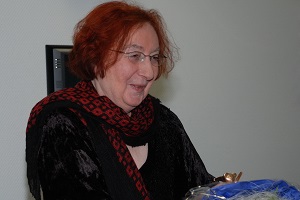
Waldtraut Lewin (8 januari 1937 – 20 mei 2017)
De Italiaanse schrijver en politicus Leonardo Sciascia werd geboren in Racalmuto, Agrigento op 8 januari 1921. Zie ook alle tags voor Leonardo Sciascia op dit blog.
Uit: Der Tag der Eule (Il giorno della civetta, vertaald door Arianna Giachi)
„Der Autobus sollte gerade losfahren. Er brummte und ratterte; einige Male heulte der Motor auf. Schweigend lag der Platz im Grau der Morgendämmerung. Nebelschwaden hingen um die Türme der Pfarrkirche. Nur der Autobus brummte. Dazu, flehend und spöttisch, die Stimme des Ölkuchenverkäufers: »Ölkuchen, heiße Ölkuchen.« Der Schaffner schloß die Wagentür. Mit einem scheppernden Geräusch setzte der Autobus sich in Bewegung. Der letzte Blick des Schaffners fiel auf den dunkelgekleideten Mann, der herbeirannte. »Einen Augenblick«, sagte der Schaffner zu dem Fahrer und öffnete noch während des Fahrens die Wagentür. Da knallten zwei Schüsse. Der Dunkelgekleidete, der gerade auf das Trittbrett springen wollte, schwebte einen Augenblick lang in der Luft, als ziehe eine unsichtbare Hand ihn empor. Die Mappe entglitt seiner Hand. Langsam sank er über ihr zusammen.
Der Schaffner fluchte. Sein Gesicht war schwefelfarben geworden. Er zitterte. Der Ölkuchenverkäufer, der drei Meter von dem Gestürzten entfernt stand, zog sich im Krebsgang Richtung Kirchentür zurück. Im Autobus rührte sich niemand. Der Fahrer war wie versteinert, die Rechte an der Handbremse, die Linke auf dem Lenkrad. Der Schaffner betrachtete alle diese Gesichter, die blicklos waren wie die Gesichter von Blinden. »Den haben sie umgebracht«, sagte er, setzte seine Mütze ab und begann sich heftig mit der Hand durch die Haare zu fahren. Dabei fluchte er noch immer.
»Die Carabinieri«, sagte der Fahrer, »wir müssen die Carabinieri holen.«
Er stand auf und öffnete die Wagentür. »Ich gehe«, sagte er zum Schaffner.
Der Schaffner schaute auf den Toten und dann auf die Fahrgäste. Im Autobus saßen auch Frauen, alte Frauen, die jeden Morgen schwere, weiße Leinensäcke bei sich hatten und Körbe voller Eier. Ihren Röcken entströmte der Geruch von Steinklee, Mist und verbranntem Holz. Gewöhnlich schimpften und zeterten sie. Jetzt waren sie stumm. Jahrhundertealtes Schweigen schien auf ihren Gesichtern eingegraben.
»Wer ist das?« fragte der Schaffner und deutete auf den Toten.
Niemand antwortete. Der Schaffner fluchte. Er war bei den Fahrgästen dieser Buslinie für sein Fluchen bekannt. Er fluchte mit Hingabe. Man hatte ihm schon mit Entlassung gedroht. Denn mit seiner üblen Angewohnheit, dauernd zu fluchen, ging er soweit, daß er keine Rücksicht auf die Anwesenheit von Geistlichen und Nonnen im Autobus nahm. Er stammte aus der Provinz Syrakus und hatte mit Mordfällen nur wenig Erfahrung. Eine dumme Provinz, die Provinz Syrakus.”
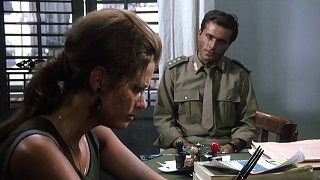
Leonardo Sciascia (8 januari 1921 – 20 november 1989)
Scene uit de film “Il giorno della civetta” (1968) met Claudia Cardinale en Franco Nero
De Engelse dichter, vertaler en graficus Alfred Charles Tomlinson werd geboren op 8 januari 1927 in Stoke-on-Trent, Staffordshire. Zie ook alle tags voor Alfred Tomlinson op dit blog.
Chinchon
Trees in this landscape
signal the presence of a river.
A side road leads us on—
parched grass, a rock horizon—
and winds us towards
a town watched over by
the blind eyes of a ruined castle:
This is Chinchon.
December a week away,
the place is half-deserted.
The square that can be converted
into a bullring or a theater
awaits the arrival of actors
to perform the piece by Lope de Vega
promised on the playbills.
We sit in the bar of the parador
in the midst of a floral display
on blue tiles, over a drink
that creates a circle of warmth
in the growing chill
and is also called Chinchon.
Aniseed. Anise is
what these dry fields feed,
with its yellowish-white small flowers
and licorice-flavored seed:
we are drinking the distillation
of Spain—a certain pungency
which is not unsweet, like the heat
and tang in the Spanish aspirate.
The sky looks down on our departure
through each one of the blind eyes
of the castle. The car
is a lost beetle in the vast
spreading amplitude of Castile
expanding around us. Snowflakes
over the far Guadarrama
feel for the mountain spine
that reaches to the heights like a line
of surf suddenly breaking on the peaks. Below,
burning stubble in the fields
is turning the twilight blue
and losing the thread of the road we are on,
Chinchón lamplit behind us, Chinchón gone.
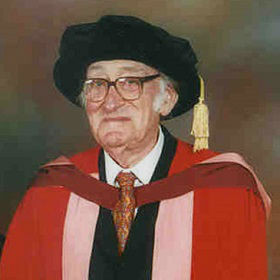
Alfred Tomlinson (8 januari 1927 – 22 August 2015)
De Franstalige, Canadese dichter, schrijver en uitgever Gaston Miron werd geboren op 8 januari 1928 in Sainte-Agathe-des-Monts. Zie ook alle tags voor Gaston Miron op dit blog.
La marche à l’amour (Fragment)
mon courage est un sapin toujours vert
et j’ai du chiendent d’achigan plein l’âme
tu es belle de tout l’avenir épargné
d’une frêle beauté soleilleuse contre l’ombre
ouvre-moi tes bras que j’entre au port
et mon corps d’amoureux viendra rouler
sur les talus du mont Royal
orignal, quand tu brames orignal
coule-moi dans ta plainte osseuse
fais-moi passer tout cabré tout empanaché
dans ton appel et ta détermination
Montréal est grand comme un désordre universel
tu es assise quelque part avec l’ombre et ton coeur
ton regard vient luire sur le sommeil des colombes
fille dont le visage est ma route aux réverbères
quand je plonge dans les nuits de sources
si jamais je te rencontre fille
après les femmes de la soif glacée
je pleurerai te consolerai
de tes jours sans pluies et sans quenouilles
des circonstances de l’amour dénoué
j’allumerai chez toi les phares de la douceur
nous nous reposerons dans la lumière
de toutes les mers en fleurs de manne
puis je jetterai dans ton corps le vent de mon sang
tu seras heureuse fille heureuse
d’être la femme que tu es dans mes bras
le monde entier sera changé en toi et moi
la marche à l’amour s’ébruite en un voilier
de pas voletant par les lacs de portage
mes absolus poings
ah violence de délices et d’aval
j’aime
que j’aime
que tu t’avances
ma ravie
frileuse aux pieds nus sur les frimas de l’aube
par ce temps profus d’épilobes en beauté
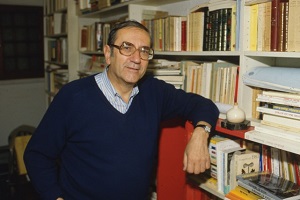
Gaston Miron (8 januari 1928 – 14 december 1996)
De Oekraïense dichter en schrijver Vasyl Stus werd geboren op 8 januari 1938 in Rakhnivka, in de provincie Vinnytsia Oblast. Zie ook alle tags voor Vasyl Stus op dit blog.
The stinging winds relentlessly pervade
The stinging winds relentlessly pervade
this embrasure of fulfillment.
Your naked voice, like a painful injection, is thrust
into this whistling December noise.
And wait awhile! And waiting is unbearable!
And one more spring that splashes like a wave,
one more oar-stroke and our black raft
will beach itself. And there — the devil take it —
and there — go on, reproach or curse at will.
I think that I do not live,
and the other one lives in the world for me
in my likeness. No eyes, no ears,
no hands, no feet or mouth. Indifferent in your body and, bit of pain,
and I live in darkness and twilight frozen
I myself, there, in terrible pain.
Vertaald door Matthew Raphael Johnson
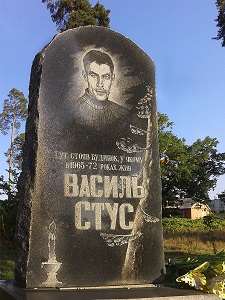
Vasyl Stus (8 januari 1938 – 4 september 1985)
Monument in Kiev
De Britse schrijver Wilkie Collins werd geboren in Londen op 8 januari 1824. Zie ook alle tags voor Wilkie Collins op dit blog.
Uit: The Woman in White
“It was the last day of July. The long hot summer was drawing to a close; and we, the weary pilgrims of the London pavement, were beginning to think of the cloud-shadows on the corn-fields, and the autumn breezes on the sea-shore.
For my own poor part, the fading summer left me out of health, out of spirits, and, if the truth must be told, out of money as well. During the past year I had not managed my professional resources as carefully as usual; and my extravagance now limited me to the prospect of spending the autumn economically between my mother’s cottage at Hampstead and my own chambers in town.
The evening, I remember, was still and cloudy; the London air was at its heaviest; the distant hum of the street-traffic was at its faintest; the small pulse of the life within me, and the great heart of the city around me, seemed to be sinking in unison, languidly and more languidly, with the sinking sun. I roused myself from the book which I was dreaming over rather than reading, and left my chambers to meet the cool night air in the suburbs. It was one of the two evenings in every week which I was accustomed to spend with my mother and my sister. So I turned my steps northward in the direction of Hampstead.
Events which I have yet to relate make it necessary to mention in this place that my father had been dead some years at the period of which I am now writing; and that my sister Sarah and I were the sole survivors of a family of five children. My father was a drawing-master before me. His exertions had made him highly successful in his profession; and his affectionate anxiety to provide for the future of those who were dependent on his labours had impelled him, from the time of his marriage, to devote to the insuring of his life a much larger portion of his income than most men consider it necessary to set aside for that purpose. Thanks to his admirable prudence and self-denial my mother and sister were left, after his death, as independent of the world as they had been during his lifetime. I succeeded to his connection, and had every reason to feel grateful for the prospect that awaited me at my starting in life.
The quiet twilight was still trembling on the topmost ridges of the heath; and the view of London below me had sunk into a black gulf in the shadow of the cloudy night, when I stood before the gate of my mother’s cottage. I had hardly rung the bell before the house door was opened violently; my worthy Italian friend, Professor Pesca, appeared in the servant’s place; and darted out joyously to receive me, with a shrill foreign parody on an English cheer.
On his own account, and, I must be allowed to add, on mine also, the Professor merits the honour of a formal introduction. Accident has made him the starting-point of the strange family story which it is the purpose of these pages to unfold.”
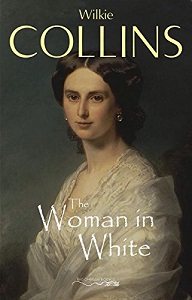
Wilkie Collins (8 januari 1824 – 23 september 1889)
Cover
De Hongaarse schrijver Béla Zsolt werd op 8 januari 1895 geboren in Komárom in het noorden van Hongarije. Zie ook alle tags voor Béla Zsolt op dit blog.
Uit: Nine Suitcases (Vertaald door Ladislaus Lob)
“The engine struggled on, and silence reigned in the compart-ment. The travelers went to sleep, or at least tried to catch forty winks. Our gendarme must have been extremely tired by the huge task he had recently accomplished, for he was sound asleep, judg-ing by the even jounce of his head back and forth. Now that his head was bare of the feathered hat and chinstrap, and his jauntily twirled mustache hung limp and ruffled, the sleeping gendarme’s harsh, martial features somewhat deflated: he had the impassive, expressionless peasant face of a hired hand who fell asleep on a haywagon bumping along on the road — the oxen would know the way home by themselves. There he sat facing me, his warm breath brushing my face as he dreamed, smacking his lips like a child. And to think of the acts this man had committed in front ofmy eyes! — or rather: what had they turned this dumb, slumbering, harmless-looking peasant into? My earlier tipsiness must still have been play-ing games with me, for I almost woke him up to tell him off, in the following way: `Listen here, homeboy, you’re from Gyor county, I from Koma-r= — we’re neighbors and practically the same age. We could have gone to the same elementary school, or hung out together waiting for the Vienna steamer at the landing stage by the Danube where we swam naked. So tell me, fellow countryman, what did you do to my poor old mother? Have you gone stark raving mad? Didn’t I, as soon as I came of age, take your side, the cause of the poor people? Didn’t I insist, even as a kid, that the lands belonging to the count of Oszony, the baron of Herkaly, and the Jew who owned Bela-puszta should be divided up among you poor people?’ Yes indeed, I was on the verge of yanking the gendarme’s shirt to wake him, when Mrs. Szabo must have sensed something, for she took my hand and squeezed it in a warning fashion. All right, all right, I thought. I won’t wake him this time. But it had hurt more than words can tell that it was precisely peasants like this one, and other loudmouth ‘little men’ of his kind, who had bloodied their hands and finished us off! The very ones for whom I had fought all my life, much more than I had for the hapless Jews! In the Ukraine, on forced labor service, whenever the officers had tormented me, it left me emotionally uninvolved. All right, they were my enemies, and I was theirs; ever since I had attained the age of reason, I had been fighting these oafish, good-for-nothing bour-geois, who, prisoners of their own ignorance and limited horizons, as if vacuum-sealed, had always considered themselves the clev-erest and most special people on earth. All they needed was the racist ideology borrowed from the Germans. But all those articles I had written were on behalf of the ‘little men’ — my proletarians and peasants — although I was well aware that most of them, impover-ished and uneducated, were selfish and cold. And yet, whenever one of them, a ‘prole’ or peasant, mistreated me in forced labor, it made me feel that my entire life, all my work, had been ludicrous. In nineteen months I met only one individual who was grateful to me, the journalist fighting for his interests.”
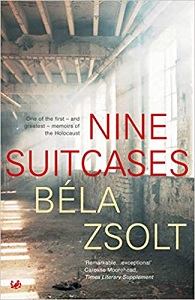
Béla Zsolt (8 januari 1895 – 6 februari 1949)
Cover
Zie voor nog meer schrijvers van de 8e januari ook mijn blog van 8 januari 2018 en ook mijn blog van 8 januari 2017 deel 2.

